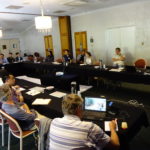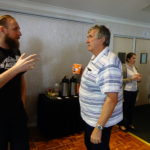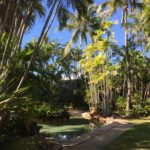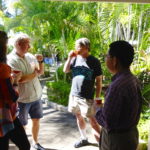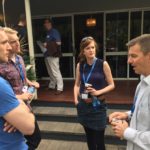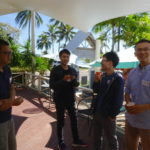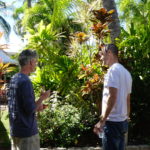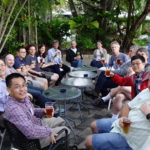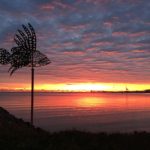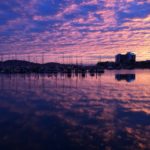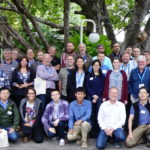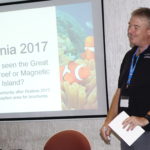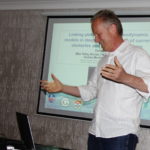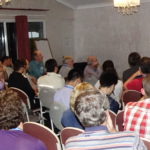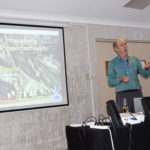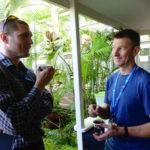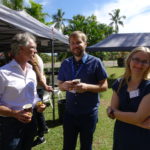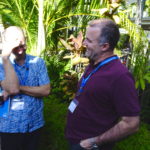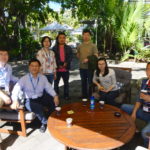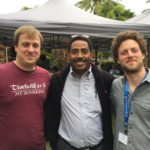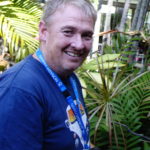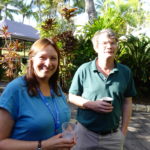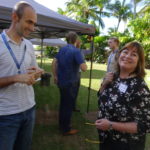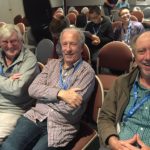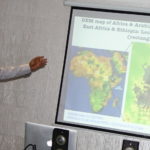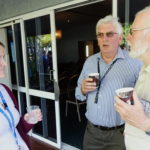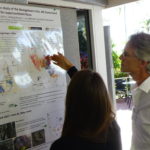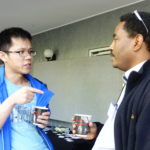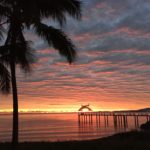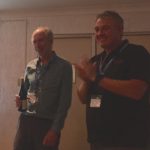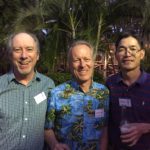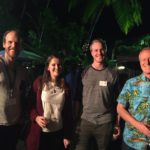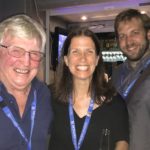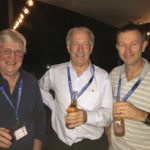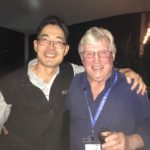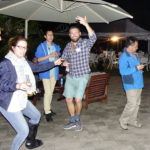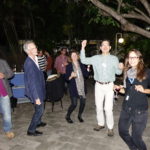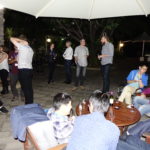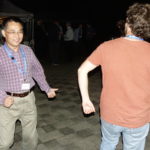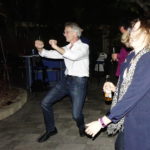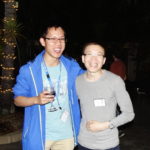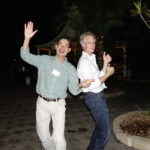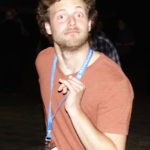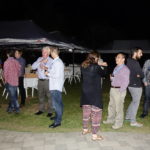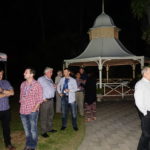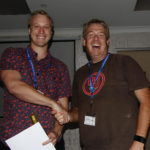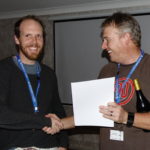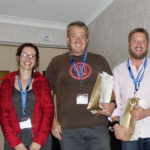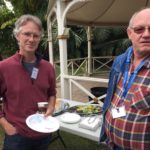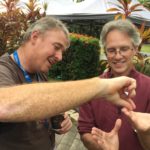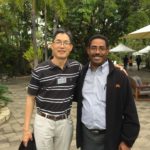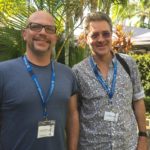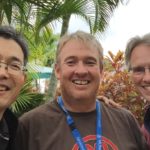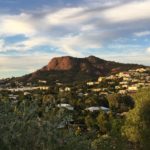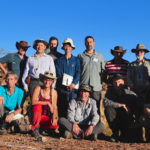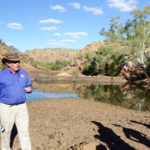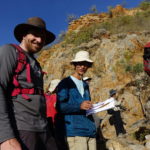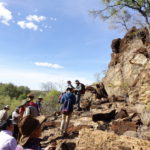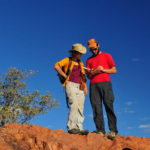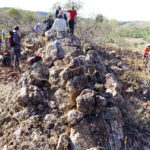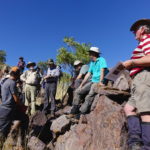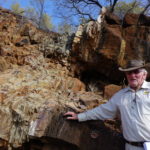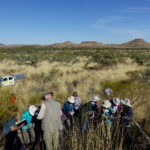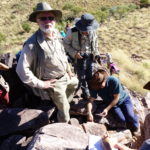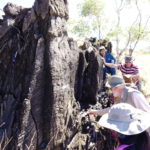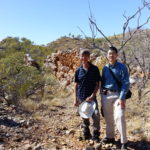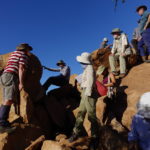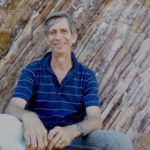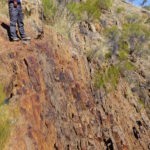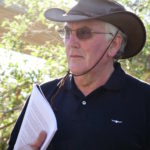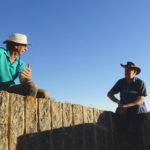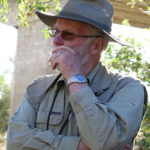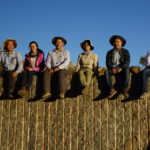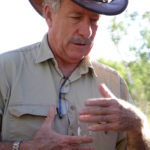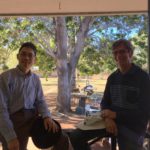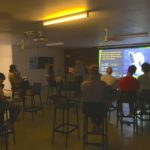Rodinia 2017 a great success! Townsville, 11-14 June, 2017
The Rodinia 2017 Conference, organised by Professor Peter Betts and the IGCP648 team, was successfully held at the tranquil tropical grove of the Seagulls Resort along the foreshore of Townsville City in North Queensland, Australia. About 70 participants, including many students, from Australia, Canada, Africa, Asia and Europe, enjoyed four days of intense scientific debate on all aspects related to supercontinent cycles, global geodynamics, and the formation and preservation of mineral resources. IGCP648 grants helped to bring member speakers from Ethiopia, China, Canada, and six student members to attend the event.
The meeting was preceded by a 2-day workshop lead by Bruce Eglington (IGCP648 co-leader; University of Saskatchewan) to introduce a group of about 30 geologists to the database systems that have been developed for IGCP 509 and 648 (http://geodynamics.curtin.edu.au/presentation-documents-rodinia-2017-database-workshop/). This was followed by the 4-day Rodinia 2017 Conference. A post-conference field trip, led by George Gibson (Australian National University) and Ian Withnall (Geological Survey of Queensland) to the Mount Isa area, was attended by 20 of the delegates. Below are brief descriptions of the highlights from the tripartite Rodinia 2017 Conference.
IGCP648 DATABASE WORKSHOP
The IGCP648 database made great progress both during its organizational workshop at the outset of Rodinia 2017 and also during the conference itself. The excitement was evident when everybody was introduced to the data systems that co-leader Bruce Eglington and his team had developed leading up to Rodinia 2017. It was encouraging to have quite a few researchers and students from China present, who also attended the productive workshop held earlier this year in Beijing (http://geodynamics.curtin.edu.au/igcp-648-china-national-working-group-kick-started-compilation-asian-database/). Starting in August, as a concrete outcome of the Rodinia 2017 database workshop, a group of graduate students will be actively compiling map information for Australia. Several state surveys and Geoscience Australia staff are also getting more involved in order to make use of the data systems in support of their own work and to be able to connect it to more global compilations. Demonstrations of the power of further developing the IGCP648 database were presented in various talks throughout the conference and received very encouraging feedback from the project community.
Presentation and Documents from the Database Workshop
CONFERENCE
All aspects of supercontinents Pangea, Rodinia and Nuna, the supercontinent cycle in general, and related geodynamic processes, were interrogated at the Rodinia 2017 Conference in Townsville: geophysics (seismology, paleomagnetism, numerical modeling), geochemistry (geochronology, tectonics), and geobiology (sedimentology, ocean-atmosphere and biosphere). Both the scope and relevance of the scientific contributions were nothing short of astounding. Also, a young generation of male and female early career scientists and students appear to be emerging in order to test the ideas put forth by the generations before them (e.g., Ian Dalziel and three Australian Laureate Fellows). Discussions were as intense as they were enjoyable and educating, occurring both during the meeting sessions and continuing into the evenings. The inspiring, scientific atmosphere broke down all disciplinary, cultural and generation boundaries. The following are some members’ reflections of the event:
“So enjoyable and thought-provoking…this was a meeting to be well remembered.”
– Peter Cawood (Monash University)
“The IGCP648 Townsville meeting was the most scientifically stimulating meeting that I’ve attended. Every presentation bought a new perspective to the evolution and importance of understanding supercontinents for all Earth systems. Fabulous meeting, thanks to all organisers.”
– Alan Collins (University of Adelaide)
“Rodinia 2017 was really great experience for me: excellent science, great field trip (with very solid backup of deep seismics – kudos to George for providing this crucial link!), and very nice camaraderie…I hope to be able to meet many of you during next Rodinia meeting…This meeting gave me great chance to present and discuss my preliminary results of seismic studies of Neoproterozoic structure and evolution of SE Poland, and I hope to expand this line of my research, in close association with the Rodinia / IGCP 648 scientific community.”
– Piotr Krzywiec (Polish Academy of Sciences)
“This has to have been the most productive conference, meeting and workshop that I have ever participated in and it is in large part due to the facilitating role that IGCP plays bringing together active researchers who really want to solve common problems… IGCP really provides a step up and process to encourage researchers to collaborate and to excite students. None of this, and certainly not the lasting partnerships that I see developed by IGCP projects such as 440, 509, 648 and others, would be possible without the process put in place by the IGCP programme.”
– Bruce Eglington (University of Saskatchewan)
Rodinia2017 – Scientific program
FIELDTRIP
A six-day field excursion to the Mt Isa region was led by George Gibson and Ian Withnall, examining Paleo- to early Mesoproterozoic tectonostratigraphic record of the Mt Isa Inlier which have been correlated to that of north-western Laurentia in the reconstruction of the supercontinent Nuna. The spirit of intense discussion and debate during the Rodinia meeting continued into the field trip, to the enlightenment of seasoned academics and students alike. Ongoing research in both northeastern Australian and its possible Canadian counterpart in Nuna are being conducted by Australian and Canadian IGCP 648 members.

